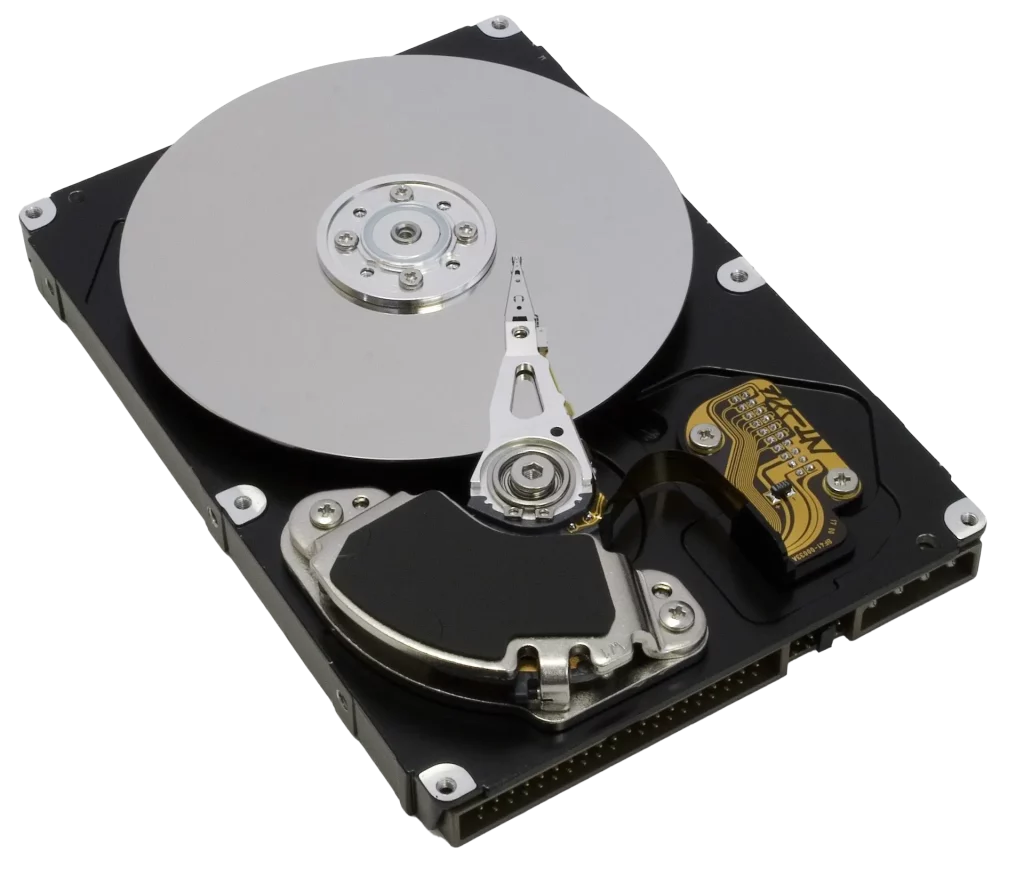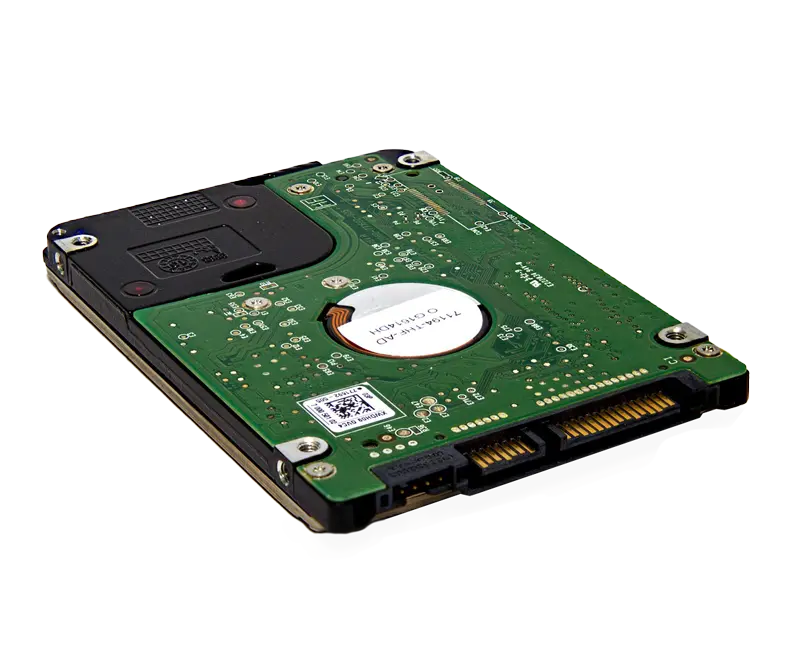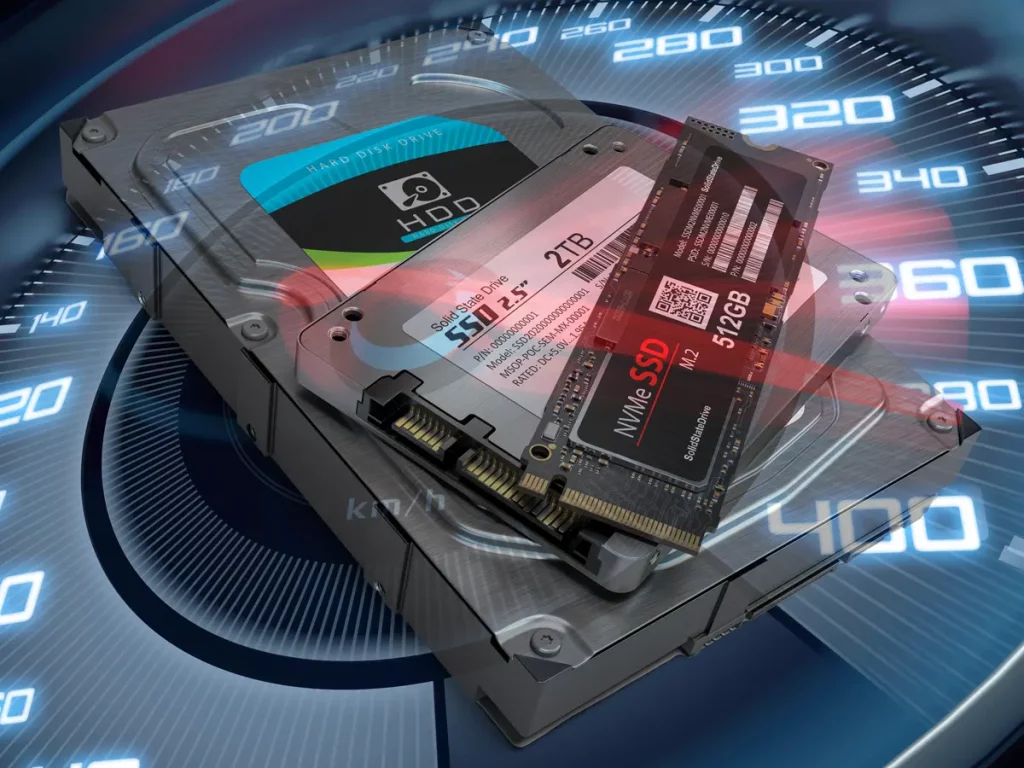SSD vs HDD
which is faster?
Sydney's seminar
Today we’re going to discuss the storage device within your computer. Many of us use a computer every day, yet the mystery of the inner workings of our machines is almost magic. Luckily for our technicians, it isn’t magic that runs a computer but a series of intelligent components that communicate and work together logically. One of the main components that allow computers to appear to work so effortlessly is the hard drive.
So, let’s start there.
WHAT IS A HARD DRIVE?
A standard hard drive, known as an HDD (Hard Disk Drive), is an electromechanical data storage device that uses rapidly rotating platters that have been coated with magnetic material to digitally store content. Or, to put it more simply, it’s like a digital filing cabinet that houses all of the information on your computer. Not only does it hold your documents, music, and videos, but it also stores your operating system and all of your applications.
While a hard drive looks like a simple metal box from the outside, a lot is happening inside. Next to the rapidly spinning disc is a moving arm that reads and writes the data. This is very similar in function to a record player. These moving parts inside the hard drive make a constant humming sound that is typically audible just over the sound of the fans. Interestingly enough, technicians often can distinguish whether it is working correctly just by its sound.


A NEW KIND OF HARD DRIVE
Hard drives are the most common form of data storage on computers. Very reliable and with ample storage, hard drives can be purchased to store as much as 20 TB of data, as of this writing. But they are not the only options for storage out there.
The counterpart to the HDD is the SSD or solid-state drive. While hard drives are much less expensive than their SSD counterparts, this newer technology has significant advantages. A recent innovation in the tech world, rather than a series of moving parts, like the traditional hard drive, SSDs use flash memory. Information is stored in semiconductor cells, writing and erasing data electrically. This is similar to the way that USB drives store and manage data. In essence, an SSD can be thought of as a large USB drive.
COMPARISONS
So, which type of drive is best for you. Let’s take a look.
Although there are some benefits to having an HDD over an SSD, these older drives have their disadvantages as well. Because of the various moving parts in the HDD, the hard drive risks damaging if too roughly handled. Once a hard drive is damaged, it cannot be fixed and must be replaced. In some cases, IT support companies can retrieve data from damaged drives, but not always. Suppose the platters collapse or the reader on that arm we discussed earlier is damaged. In that case, the hard drive will typically need to be sent off to a data retrieval specialist with specialized tools. If this happens, the cost of retrieving your data can quickly climb to thousands of dollars.
In worst-case scenarios, the data will simply be lost. That’s why it’s always good to have a backup.
Because there are no moving parts in SSDs, computers can write and retrieve data much more quickly than standard HDDs, reducing access times and latencies. They are also much more resistant to physical shock, making them more durable, and they run silently, so you won’t hear those platters spinning over your fan noise. Additionally, SSDs use less energy and therefore are much less likely to overheat. If you like charts and want to see some of these differences for yourself, Novabench has a great comparison tool.
The primary downside of SSDs is their cost. While a 1 TB internal hard drive might run you around $40, a similar SSD costs about $100. The other is archival storage. A disconnected SSD will slowly leak data over time, so they are not the best choice for long-term data storage.

CHANGE IS GOOD
Even with these disadvantages, most people are choosing to transition to SSDs. Your PC will run much faster with an SSD, while you run a much lower risk of losing all of your data. And if you are interested in switching, we’re running a fantastic deal right now that includes installing a new SSD and transferring all your data.
At Clark Computer Services, we know that a slow computer can be frustrating, but there are a lot reasons a computer might seem slow. Before you throw in the towel, give us a call at 301-456-6931 or email us at support@clarkcomputerservices.com.

Being raised by Clark’s owner, Darren, I have always been immersed in the world of technology. However, I have always followed it from a distance. I went to college to get my degree in Business Finance and Applied Economics, as I have always been a fan of research and statistics. I was even lucky enough to get my senior thesis in economics published. My next string of luck was getting a job straight out of college as a Researcher in Richmond, VA. I was able to pursue research and publish dozens of news articles in my field. Now, I am so excited to delve back into the world of technology that I was raised in, and look forward to honing my research in the technological field.
